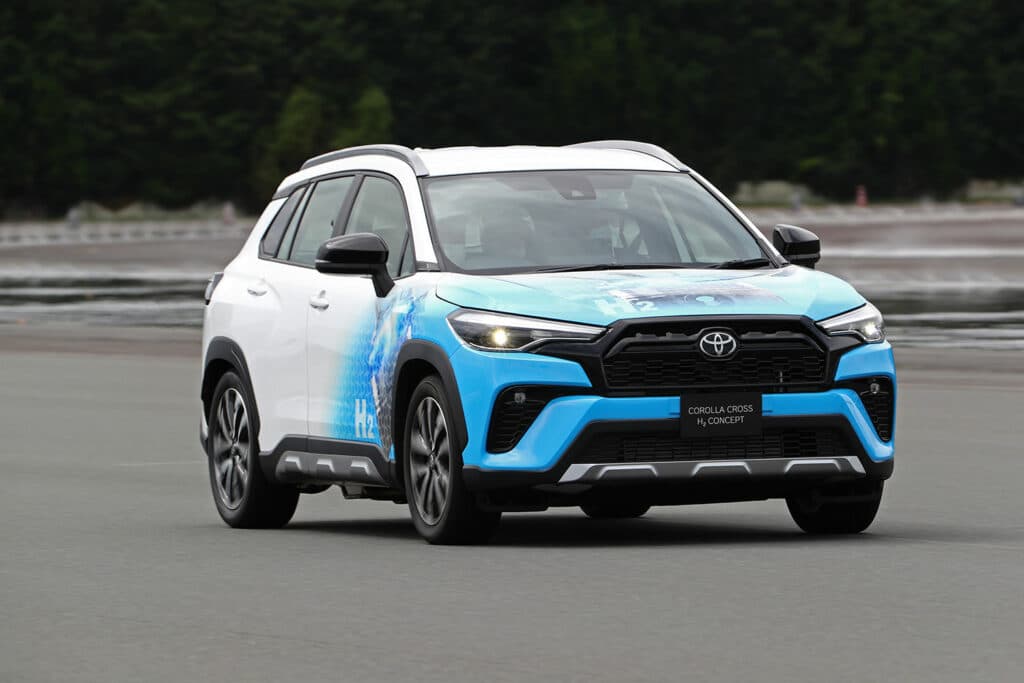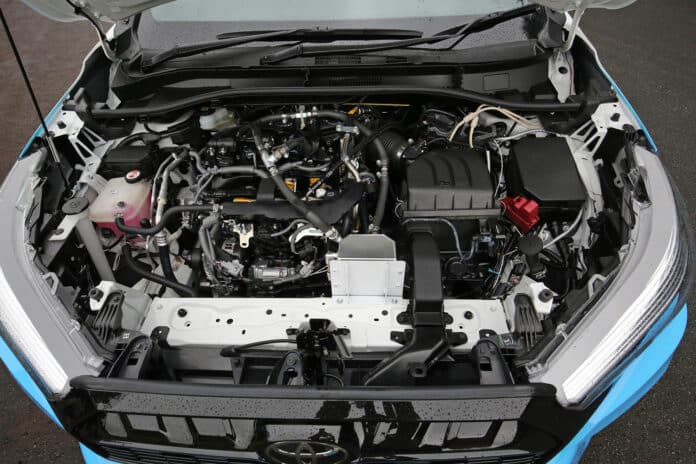In a world of dramatically varying customer needs and market environments, Toyota’s strategy for achieving its carbon neutrality is to develop and offer multiple technologies to support customers on their individual journeys to zero emissions by 2035.
The company aims to offer the opportunity for Toyota’s customers worldwide to reduce their carbon footprint today – irrespective of their environments and their daily needs. This is all thanks to Toyota’s multi-technology approach, which includes battery electric and fuel cell electric and plug-in hybrid electric and hybrid electric. Toyota also believes it is too early to focus on one single zero-emission solution and is, therefore, concurrently developing hydrogen fuel cell and hydrogen combustion technology alongside battery electric technology.
The technological progress gave Toyota engineers the confidence to create a prototype road car – the Corolla Cross H2 Concept. Toyota was able to create a Corolla Cross H2 hydrogen prototype that can transport five passengers and their luggage by fitting the 1.6l 3-cylinder turbo engine from the GR Corolla with high-pressure hydrogen direct injection engine technology from motorsport activity and adding the hydrogen tank packaging know-how from Mirai. Real-world evaluation is currently being carried out alongside ongoing digital development, with the vehicle soon to begin winter testing in northern Japan.

Some of the main advantages of hydrogen combustion include the ability to leverage existing internal combustion engine technologies, quick refueling times, and the clear reduction in the use and necessity for limited supply elements like lithium and nickel. Hydrogen combustion could lead to widespread, accessible carbon-reduction solutions faster by modifying current technologies and maximizing current investments.
Toyota is currently around 40% along the path to commercialization of products such as the Corolla Cross H2 Concept. It is not yet possible to say if the technology will reach maturity for road cars, but there is unquestionably a great opportunity in motorsports.
This year, Toyota has had success with its hydrogen-powered internal combustion engines. Through the Rookie Racing team, it has participated in all Super Taikyu endurance races in Japan with a hydrogen combustion GR Corolla H2. During this time, Toyota President Akio Toyoda, under his master-driver pseudonym ‘Morizo,’ has taken the wheel in every race to assess the situation and make improvements.
In August this year, a Toyota hydrogen-engine vehicle also made its maiden appearance outside of Japan when the GR Yaris H2 was put through its paces in a demonstration run at the WRC in Ypres, Belgium.
This regular and intense motorsports activity has helped to accelerate development activity and technical progress. In addition to hydrogen usage, Toyota is working together with many stakeholders in the areas of green hydrogen production and transportation with the demanding environment of motorsports as a testbed, creating a wide range of collaborations beyond the boundaries of the industry to help realize a carbon-neutral society.
